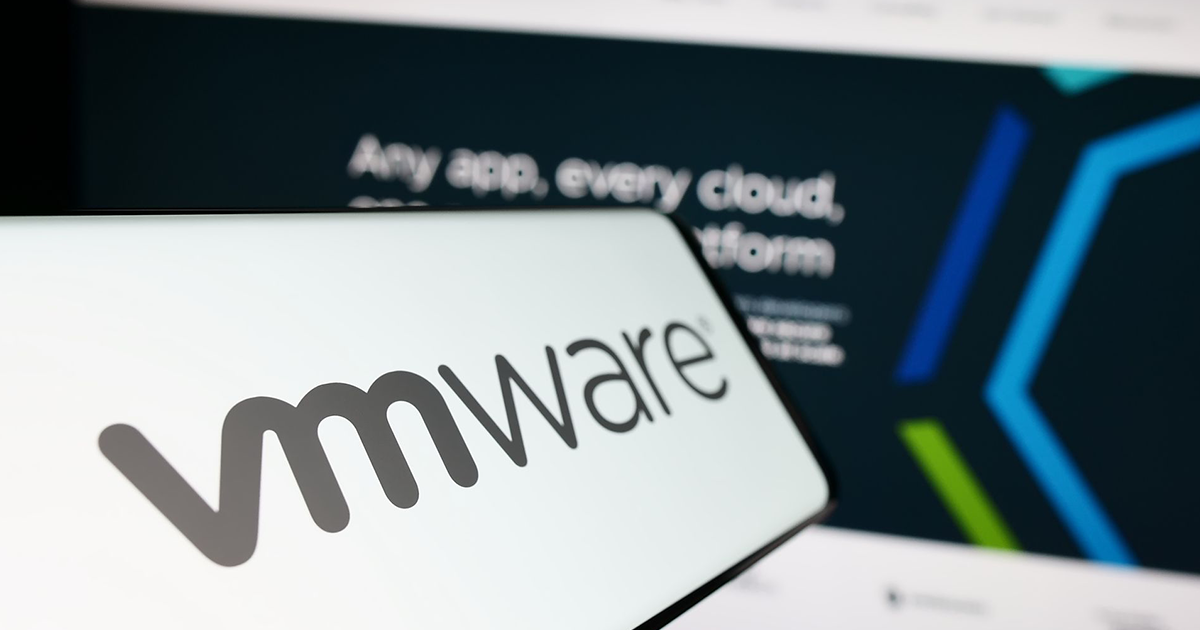Cybersecurity Best Practices for Small Businesses: Protecting Your Data in 2024
In recent years, there has been a monumental shift in the way businesses operate.
E-commerce, which had been gaining momentum, saw unprecedented growth spurred by the pandemic. Additionally, the expectation for companies to enhance their digital presence has become more pronounced among consumers.
The problem: being part of the digital world also means facing potential security risks.
According to
Verizon's 2022 Data Breach Investigations Report, 43% of breaches involved small businesses. Phishing, ransomware, and other cyber attacks resulted in an average loss of over $200,000 for small businesses in 2021.
With that being said, it’s important to establish a
robust cybersecurity system. As a small businesses,
you can shield your reputation, finances, and operations from the devastating impact of cyber threats.
Below, you'll find a comprehensive overview of the most critical risks, alongside strategic approaches and recommended technologies for implementation.
What Are The Common Cybersecurity Risks?
Email Phishing
Cybercriminals dispatch counterfeit emails aiming to dupe recipients into divulging private data or downloading malware. These emails often mimic official communications and target employees handling financial and customer data. Phishing can culminate in identity and financial theft, or even data violations.
Malware
This encompasses malicious software variants like viruses, worms, and trojans that infiltrate devices surreptitiously. Delivered via phishing emails, compromised websites, or risky downloads, malware can obliterate files, encrypt information, log keystrokes, and grant attackers unrestrained device control.
Ransomware
A form of malware demanding ransom in cash or digital currency to unlock access to encrypted files and data.
One example of the damage cyber attacks can cause small businesses is the
2021 ransomware attack on the office management software company Kaseya. Over 1,500 businesses that used Kaseya's software were impacted, with ransom demands totaling $70 million.
Many of these were small businesses like dentist offices, accounting firms, and restaurants. This attack highlighted how a single vulnerability can have a massive cascading effect.
Cybercriminals are drawn to small businesses as they often lack resources to invest in cybersecurity. However, the financial damage from lost revenue, lawsuits, and reputational harm can be enough to put a small business out of commission permanently.
The 3 Core Basics Of Cybersecurity Foundations
Keeping your small business safe from cyber threats starts with adopting a cybersecurity mindset. That means everyone on your team, from the CEO to the newest team member, needs to understand why protecting information is so important. Here are the three core basics you need to know and have:
- Confidentiality. Keep your data safe by limiting access to authorized individuals only and at all times. This means setting up role-based access controls, so employees can only access what they need for their job. And don't forget about strong password policies to keep sensitive info under wraps.
- Integrity: Make sure your data stays accurate and reliable by preventing unauthorized changes. Hackers like to mess with your data, so use things like version control systems, regular data backups, and system logs to keep everything in check.
- Availability: Keep your systems up and running, no matter what. This means having backup plans in place for when things go haywire, like redundant systems, failover setups, and disaster recovery plans.
Want to learn more? Schedule a FREE consultation with Precision IT today!
How To Lay Out The Best Practices For Cybersecurity
Now that you've grasped the importance of confidentiality, integrity, and availability, you should also know that cybersecurity isn't a one-size-fits-all solution. It's more like custom tailoring to fit your business needs precisely.
For instance, let’s say you run a small healthcare clinic. While it may have stringent measures in place to protect patient data (ensuring confidentiality), it could still face risks like cyberattacks that disrupt its operations (impacting availability) or compromise the accuracy of patient records (threatening integrity).
How can you develop a cyber security plan that’s FIT for your specific industry?
1. Develop a Cybersecurity Plan
Consider what kinds of data you store, who needs access, your cybersecurity budget, and more. Then develop policies and procedures to mitigate identified risks. Your plan should cover access controls, incident response, network security, employee training, and regular audits. Review and update the plan periodically as your business evolves.
2. Deploy Layered Security
No single solution can fully protect against cyber threats. A layered approach using multiple complementary security tools is recommended:
- Firewalls monitor network traffic and block unauthorized access. Install firewalls at network edges and on endpoints.
- Antivirus software detects and removes malware. Use endpoint protection on all devices.
- Encryption scrambles data so only authorized parties can read it. Encrypt sensitive data in transit and at rest.
- Multi-factor authentication requires users to prove identity in multiple ways before accessing accounts. Enable on critical systems.
- Email filtering blocks dangerous emails and attachments. Implement protocols like SPF, DKIM and DMARC.
3. Secure Networks
Properly configuring networks and servers is critical. Segment networks into subnets with firewalls between them. Use VPNs for secure remote access. Disable unused ports and services. Create separate Wi-Fi networks for employees and guests. Change default passwords and keep firmware updated.
4. Backup Data
Regularly back up important business data and test restoration. Maintain onsite and offsite backups protected by encryption. Backup frequency should align with how much data loss your business can tolerate. Automate backups for efficiency.

Other Advanced Cybersecurity Measures
Your goal for your small business is growth and expansion, right? And as small businesses expand, your risks to data and systems also increase. Herea are some ways you can ensure ongoing protection down the line:
1. Multi-Factor Authentication
Multi-factor authentication (MFA) adds an extra layer of protection beyond just passwords. It requires users to provide two or more verification factors, like a one-time code sent to their phone, before they can access a system.
Enabling MFA can significantly reduce the risk of account takeovers and unauthorized access.
2. Endpoint Detection and Response
Endpoint detection and response (EDR) solutions provide continuous monitoring of endpoints like laptops and servers. EDR can quickly detect threats and automatically respond to stop attacks. EDR gives small businesses enterprise-grade threat visibility, especially against advanced attacks that evade traditional antivirus software.
3. Cybersecurity Policies and Frameworks
Comprehensive cybersecurity policies lay out rules and procedures for data protection. Frameworks like ISO 27001 and NIST CSF provide guidelines to implement robust cybersecurity practices. Adopting these policies and frameworks brings structure to cybersecurity efforts and reassures customers.
4. Legal and Regulatory Considerations
Data protection laws like GDPR and CCPA have significant implications for cybersecurity. Failing to comply can lead to heavy fines. Small businesses should review requirements around data handling, breaches, and privacy. Consulting legal counsel helps fully understand obligations.
Advanced tools and disciplined cybersecurity practices enable small businesses to lock down their data and defend against sophisticated threats.
Proactive adoption of these measures is key to long-term success.
The Importance Of Human Training in Cybersecurity
Many successful cyber attacks start with social engineering - manipulating human psychology to gain sensitive information or access. Phishing emails are a prime example, tricking users into clicking malicious links or attachments. Comprehensive security awareness training can help employees identify risks and make smart security decisions. Training should cover topics like phishing detection, safe web browsing, password hygiene, and preventing inadvertent data exposure. Personnel should be educated on the latest cybersecurity best practices and threats.
Precision IT can train your team to be susceptible to these attacks!
Conclusion
Small businesses cannot afford to be complacent when it comes to cybersecurity. The threats are real and growing more sophisticated each day. However, with the right strategy and solutions in place, small businesses can empower themselves to thwart most attacks.
We encourage you to take proactive steps starting today to enhance your
cybersecurity posture.
Elevate Your Cybersecurity Game with Precision IT Consulting in 2024
Our Managed IT Services take the burden of IT maintenance off your shoulders, allowing you to concentrate on what you do best - running your business. With our IT Security services, gain access to unparalleled threat intelligence and cutting-edge analytics, ensuring your business remains both safe and productive. Moreover, our IT Consulting Services offer the expertise needed to navigate the technological shifts of your company, empowering you with strategies for digital transformation.
But that's not all. As your business evolves, so do your cybersecurity needs. Precision IT offers tailored Cloud Computing Services, including expertise in Microsoft 365 and Azure, to ensure your cloud solutions are as resilient as they are efficient.
Ready to transform your cybersecurity approach and safeguard your business's future? Schedule your
FREE consultation with Precision IT today and take the first step towards a secure, thriving digital presence.






